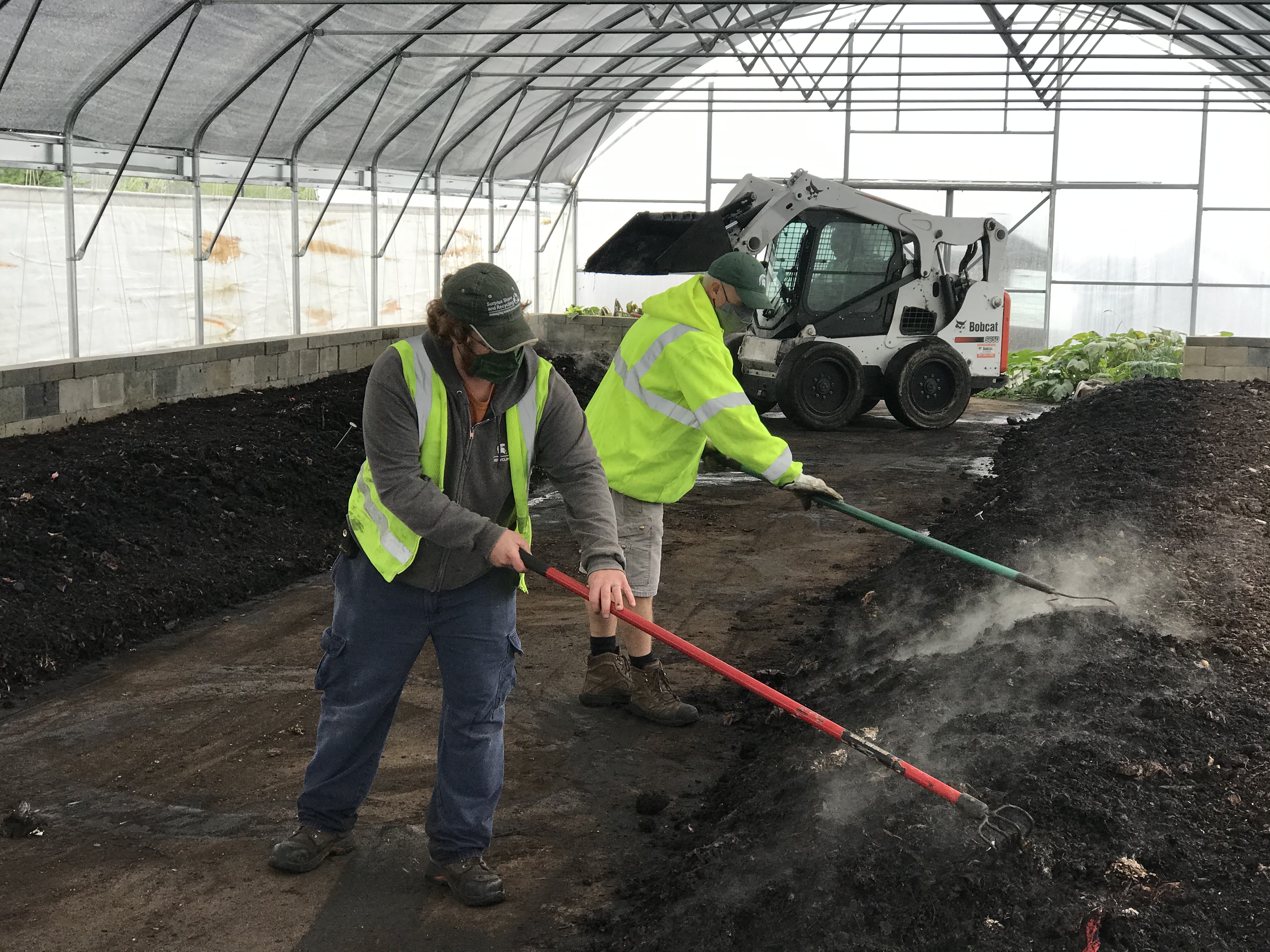Grow Green Vermicompost Program
This page moved. Please see the updated https://msurecycling.com/vermicompost/
Spartan worms convert MSU's food scraps into nutrient-rich compost
For years, MSU has been vermicomposting food waste generated on campus. Vermicomposting is like composting, but with worms. The process converts organic material, such as select food scraps and plant matter, into a nutrient-rich soil amendment suitable for farms and gardens. The result is packaged and sold through the MSU Surplus Store as
About a decade ago, Dr. John Biernbaum of the Horticulture Department created the Food Scrap Worm Composting (vermicomposting) Project to address excess pre-consumer food scraps generated at MSU dining facilities. The vermicompost operation compliments the Anaerobic Digester Project, which is designated to handle post-consumer food remains. In fall of 2020, as Biernbaum prepared to retire, he passed the torch the Surplus Store & Recycling Center, which is now the site of the campus vermicomposting operation. Read more
In the summer of 2020, SSRC staff constructed a hoophouse for the vermicompost operation. It is "home, sweet home" for thousands of hard-working Spartan worms.
Today, organic waste is collected from the back-of-house operations at residential dining facilities, Sparty's coffee shops, and select offices on campus.
Grow Green Vermicompost is a well-aged and stable soil amendment for plant growth for sale at the Surplus Store. It comes from pre-consumer food scraps (rinds, peelings, seeds, etc.) and coffee grounds from MSU dining facilities, mixed with leaves and other locally sourced dry organic material and briefly hot composted before being processed by red wiggler worms. Your plants will thank you for the boost!

Sean and Rob raking in the fresh feed dropped off by Reg (pictured in the Bobcat). This pre-composted material that they're raking in feeds the worms and enables them (the worms) to produce a rich vermicompost.
